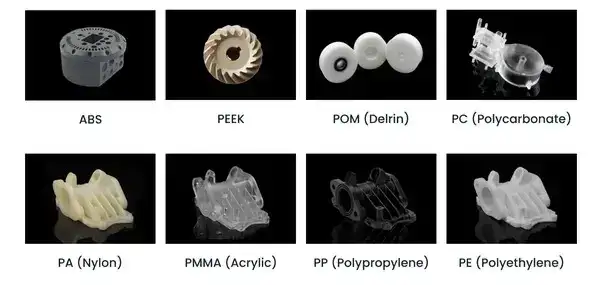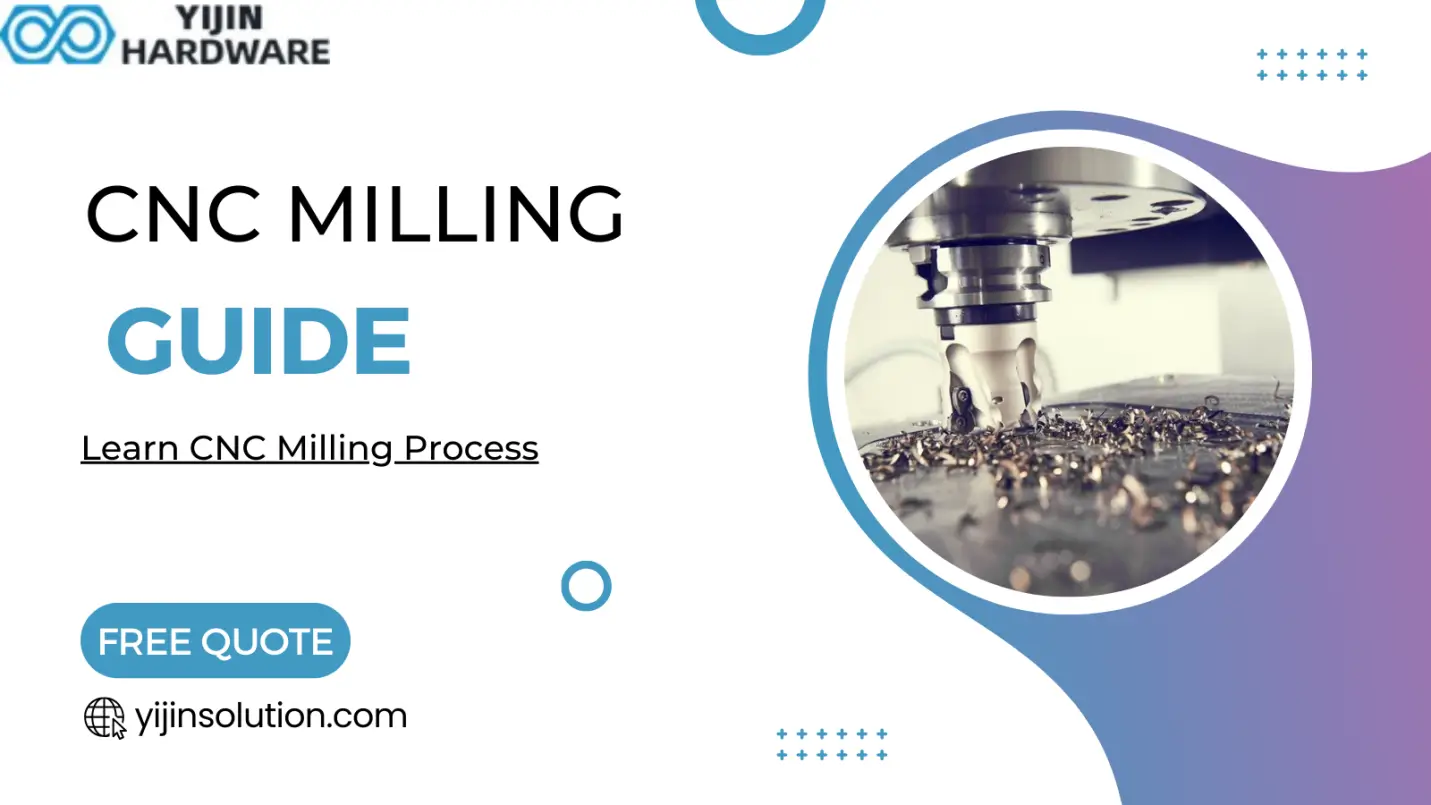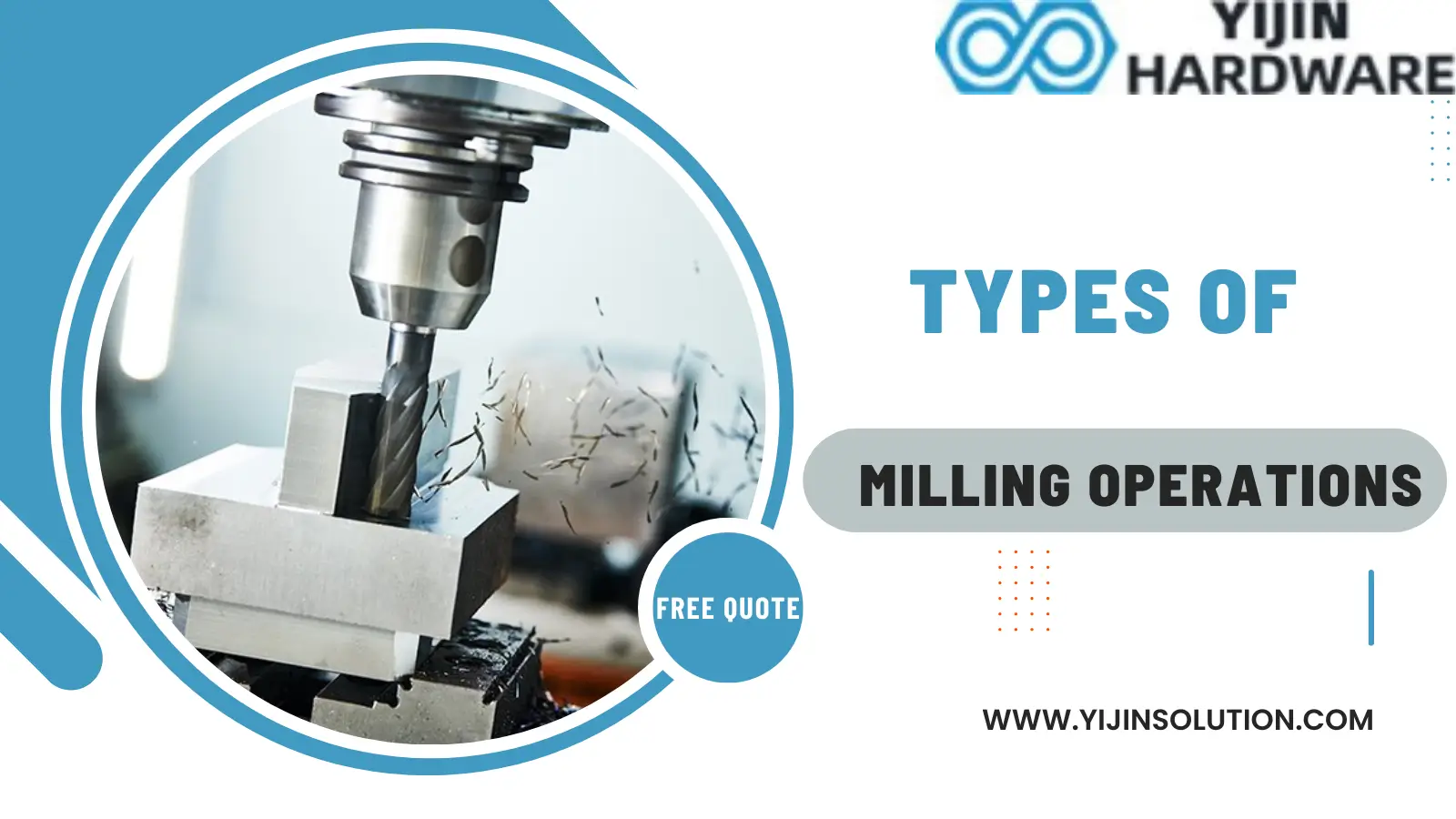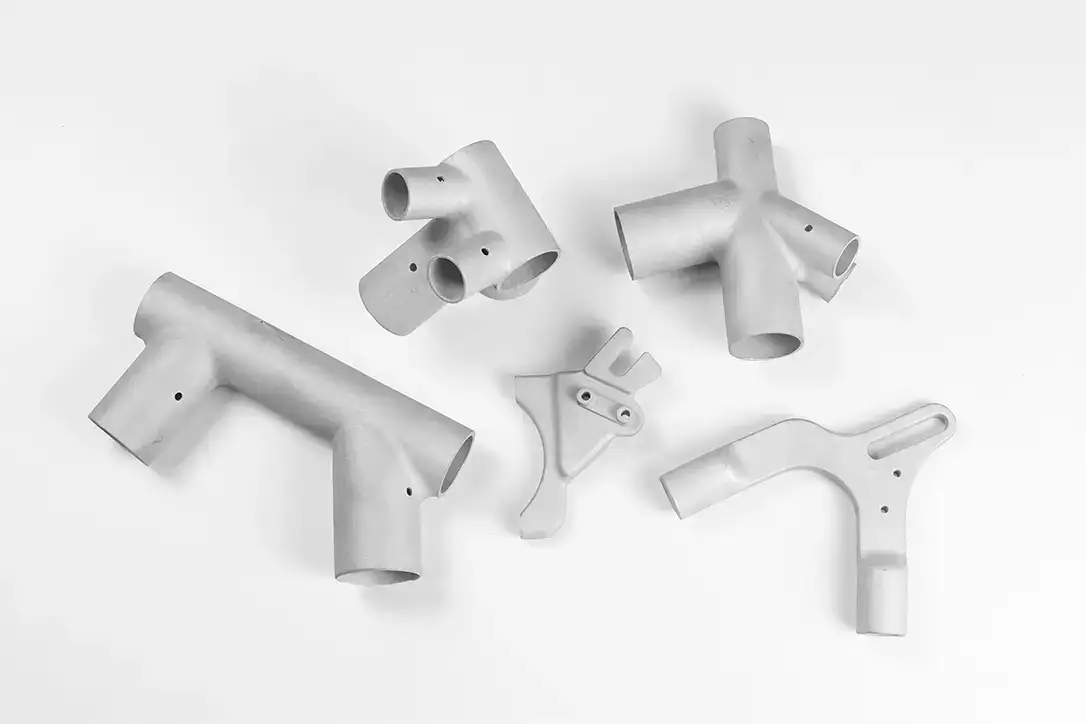
CNC materials selection is a basic step in machining, where each option has unique properties for certain requirements. Metals are appreciated for their strength and resilience. In contrast, plastics provide the features of low weight and resistance to corrosion. Advanced composites and engineered materials are tailored to specific needs, for example high strength applications in aerospace or medical devices.
What will you learn?
This article unbundles selecting the right CNC material focusing on critical factors such as weight, heat resistance and other aesthetic considerations. It leads the readers to make educated decisions to achieve optimal project outcomes by combining technical requirements with actual functionality.
What are CNC Materials?
Choosing the perfect material for a CNC machining project is one of the crucial steps for good machining production. CNC machining material is metal, plastic, composite, and engineering, unique with their own properties and application.
Metals are favored for their high strength and durability, making them ideal for components that withstand significant stress or heat. The most commonly used metals include aluminum, stainless steel, carbon steel, and copper.
Plastics offer versatility and can be selected for their insulating properties, resistance to corrosion, or lightweight. The plastics commonly used for machining include Acetal, Acrylic, Polycarbonate, and ABS. They are applicable for many applications which include parts needing precision and good aesthetic properties.
Composites are materials made from two or more constituent materials with significantly different physical or chemical properties. They are selected for particular features such as higher durability, lower weight, or better heat resistance.
Engineering materials are designed to have superior mechanical properties, such as higher strength or temperature resistance. They are often used in specialized applications, including aerospace and medical devices.
Basic Considerations:
The choice of material impacts the machining process itself. Various materials may need particular cutting tools or changes in machining parameters, such as feed rate, cutting speed, and rpm, to prevent defects such as warping or thermal damage. Metals and other materials may require coolants to control heat during machining, while plastics might need tools specially designed to stop the melting and deformation.
What’s More?
Choosing the appropriate material requires the consideration of the part’s application, the operating condition, and one’s necessary physical characteristics. This is a trade-off between performance, price and machine-ability. Seeking advice from experts and using prototypes are very successful approaches to make sure that the selected material matches the goals of the project and becomes the most efficient and cost-effective.
Through careful consideration of these factors, manufacturers can make reasoned decisions, harmonizing the project’s technical demands with economic factors and consequently will achieve success.
Best Materials for CNC machining
Choosing the right CNC material is a key step in creating quality parts. Let’s explore some of the best materials for CNC machining.
Metal CNC Materials
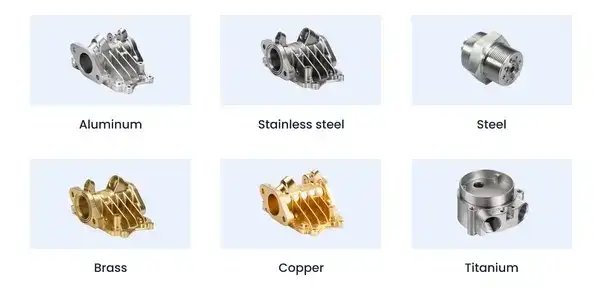
Aluminum (6061, 7075): Lightweight and strong, aluminum shines in aerospace and automotive parts. It is easy to use and quite attractive. Alloys 6061 and 7075 are preferred in particular, due to the combination of good properties and easy machinability. Nevertheless, aluminum is more costly than some other metals.
Stainless Steel (316, 303, and 304): Known for its toughness and shiny finish, stainless steel resists wear and corrosion. The hardness of this material such as metal makes machining a hard process. It is also a great strength for manufacturing medical tools and outdoor equipment. The price and process ability are different for the grades 316, 303 and 304, where grade 316 is most desired for extreme condition application.
Brass: It shines in both looks and functionality. Easy to shape and resistant to rust, it’s great for decorative items and gadgets needing a spark of electricity. You’ll find brass in everyday items, such as plumbing and musical instruments.
Copper: It stands out for how well it leads electricity and heat. Though it’s a bit tough to shape due to its softness, it’s key in wires and elegant jewelry. Its role in tech gadgets and stylish accessories is unmatched.
Titanium: It is as strong as some metals but way lighter. It’s perfect for parts that need to be tough without the weight. Think of high-flying planes or medical implants. Its strength comes with a high price, but it’s worth it for cutting-edge uses.
Magnesium: It offers the best of both worlds: it’s both light and strong. It is ideal for making cars lighter or equipment that can handle the heat. Watch out, though, it’s quick to catch fire and not the easiest to keep shiny.
Carbon Steel and Alloy Steel: These steels are strong and cost-effective. They are designed for structural uses and fasteners and are less corrosive resistant than stainless steel or aluminum. They are not the pretty ones but their brawn and price make them favorites.
Each material has its superpowers, depending on what your project needs. Whether its strength, beauty, or conducting power, picking the right one makes all the difference.
Plastic CNC Materials
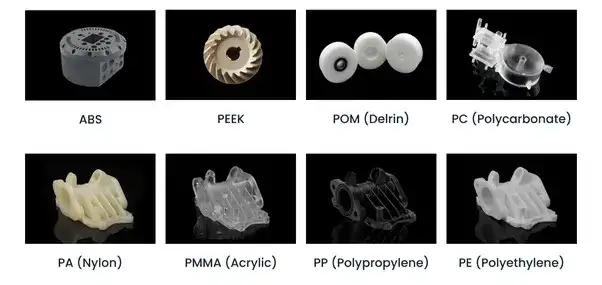
When it comes to CNC machining, picking the right plastic material is key. Here’s a quick guide on some top picks:
ABS is a real workhorse in the CNC world. Tough and resistant to chemicals and electrical current, it’s a go-to for everything from toys to car parts. Plus, it’s easy to color and less costly than fancier plastics. Just remember, it’s not the best with heat.
Nylon is super strong, making it perfect for ropes and gears. It’s a bit like ABS but with more muscle and slickness for moving parts. The downside? It can get a bit soggy over time, absorbing moisture.
PMMA Acrylic offers clarity that’s hard to beat, acting as a glass stand-in for everything from lenses to food containers. It’s scratch-resistant but not the toughest against impacts. Heating it too much can warp it, but a little polish can clear things up nicely.
PEEK steps in when other plastics just won’t cut it, especially in high heat or when you need something super strong. It is employed in advanced industries such as aerospace and medicine. Though it is a top drawer, it is expensive and needs to be handled very carefully to evade stress cracks.
UHMWPE is as tough as it comes, sliding into applications with its slick, strong, and chemical-resistant nature. It is commonly used in medical implants as well as heavy-duty machinery parts.
Other plastics include HDPE, PET, PTFE, and polypropylene. Your project’s specific needs should guide your choice among these diverse materials.
Other CNC Materials
CNC machining does not only deal with metals and plastics. Let’s move on to other materials that perform well in this regard.
Foam stands out for being both light and strong. It’s like a sturdy sponge that can take on many shapes and sizes, making it perfect for packing or decoration. Foam keeps things cool or warm, thanks to its insulating skills. Think of it as the versatile, lightweight protector in the CNC world.
Wood brings natural beauty and strength to the table. It’s easy to shape and friendly to the planet, making it a top pick for furniture and decor that stand out. Remember, working with wood can get dusty, so keeping things clean is a must.
Composites mix different materials to bring out the best of both worlds. They can be tough to work with because each part of the mix acts differently. However, their power and flexibility make them idols in vehicles, aircraft, and sporting equipment.
Apart from helping you choose the most suitable material for your project, CNC machining also provides you with unlimited possibilities such as foam, wood and composites.
How to Choose the Right CNC Materials
The correct choice of the material for your CNC project is very important. Let us simplify it.
Part Weight: Think about how heavy your finished product will be. Heavier parts cost more to make and take longer, too. They need bigger machines to get the job done. So, if you’re trying to keep costs down or make something quickly, lighter might be better.
Heat Resistance Matters: If your part will be in hot places, you need a material that can handle the heat. During CNC machining, materials get really hot and cool down fast. Choose one that won’t get ruined by these temperature changes.
Electrical Conductivity and Magnets: Some materials can handle electricity better, which helps keep them from warping when they’re being cut. Also, materials that aren’t magnetic are easier to work with because they don’t get pulled around by the machine’s magnets. This means you’ll get a cleaner cut.
Hardness: Hard materials can be tough to shape and might wear down tools quickly. Yet, softer materials might not stand up to some jobs. It’s like finding the right balance on a seesaw. You need a material that’s just right for cutting yet durable for your project’s needs.
Surface Finish: If you want parts that look smooth and work smoothly, pick a material that can be finely machined. Imagine sliding your hand over a perfectly smooth surface; that’s the goal. A good finish means less wear and better performance.
Aesthetics: For projects where looks matter, choose materials that can be made to shine, whether through polishing, coating, or painting. Think about how you want your finished product to catch someone’s eye, especially if it’s going to be on display or sold.
Get CNC Machining Services from Yijin Hardware
Material selection is key to a successful CNC project, and Yijin Hardware is here to assist. We offer CNC materials of varying types which include metals, like aluminum and stainless steel, as well as plastics and composites and our services are aimed at satisfying the particular requirements. Whether you are working on a light and strong project, heat resistant project, or just a project that has to look good, Yijin Hardware have the expertise and materials you need to get the job done. Considering our commitment to quality and precision, we assure you that you will get outstanding result.
Is your CNC project ready to start? Contact us now and find the perfect material for your needs. We might do something amazing.
 Call Us Today! (+86) 188-2253-7569
Call Us Today! (+86) 188-2253-7569